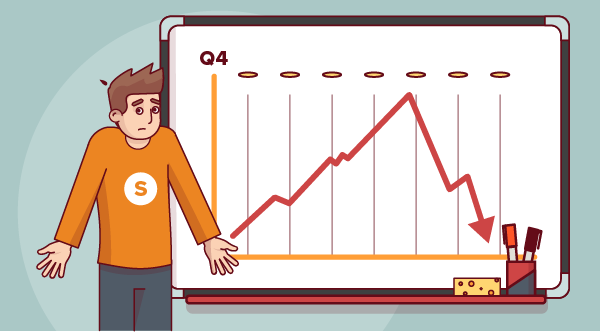Wil Schroter

As Founders, it's really hard for us to separate "startup peril” with a feeling of personal safety.
So often our apocalyptic version of what will happen with our startup gets exponentially grafted onto this nightmare scenario of our future selves.
How can I feel safe when my startup is in peril?
When things are going rough at our startup, the first step we need to take is to isolate the startup's outcome from our own.
Our startup could end horribly. We will lose any income we had. We may lose a substantial amount of our savings or net worth.
But that doesn't mean we're unsafe personally.
We're capable of creating more income (yeah, a "job"), and we won't be hungry on the side of the road. Given a single year, we can come back fighting. At the moment it may feel awful.
But upon reflection, we have to understand personal "safety" is rarely at risk.
Why would personal safety really matter?
Recognizing personal safety is critical to resetting our approach.
It's like playing a video game. We know that if our character "dies" in the game, our game may be over. But we don't die — we live to fight again (unless we're in the Matrix, in which case the body cannot live without the mind).
By separating our personal safety, we can start to say, "Look, I'm going to do everything I can to make this startup work, but I'm also going to recognize that I will survive even if the startup doesn't — we're not the same."
Our Personal Safety is Rarely in Jeopardy
For startup Founders, it's rare that our personal safety is in actual jeopardy, so the more we can reassure ourselves that we'll be fine, the better we can navigate our startups (regardless of the outcome) with a clear mind.
That clear mind may be in fact what brings our startups back from the brink to begin with.
In Case You Missed It
How to be resilient after failing. developing a successful business is an exercise in flexibility — and failure. But learning how to be resilient in the face of failure may not come naturally for all. Here are three strategies to developing the right emotions and mindset.
The top 13 reasons why startups fail. Failure is an essential part of the startup ecosystem — but no one wants to fail. To help you avoid that fate, here are the top reasons why startups fail.
How to shut down gracefully (podcast). Everyone talks about starting companies, but nobody ever tells us how to shut them down. Wil and Ryan break down how to wind down a startup with as much grace as possible.
Find this article helpful?
This is just a small sample! Register to unlock our in-depth courses, hundreds of video courses, and a library of playbooks and articles to grow your startup fast. Let us Let us show you!
Submission confirms agreement to our Terms of Service and Privacy Policy.
Already a member? Login
No comments yet.
Start a Membership to join the discussion.
Already a member? Login
